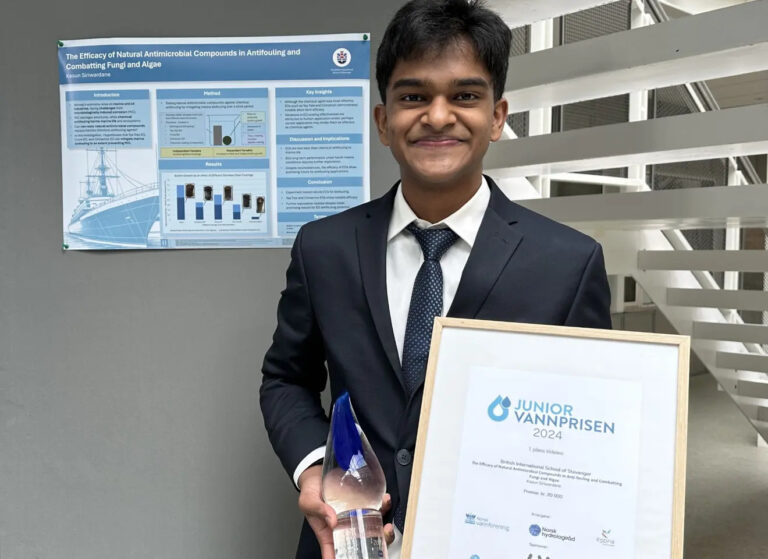heading

Hello everyone!
I am Kasun Siriwardane, a 15-year-old teenager curious about the various aspects, problems, and issues of sustainability in water. My fascination with water’s potential as both a resource and a challenge fuels my dedication to sustainable water management. Through marine surface coatings research, I seek innovative solutions to prevent the growth of biofilm on ship hulls using natural oils. My research focuses on developing eco-friendly coatings infused with natural oils that disrupt biofilm formation on ship hulls, thereby preventing microbiologically induced corrosion without inadvertently harming marine life. Participating in the Stockholm Junior Water Prize is an opportunity to contribute to the global conversation on water security and inspire collaborative action for a more water-resilient future.
Norway’s vibrant marine ecosystems teem with life; however, the oil and marine industries, reliant on offshore steel structure like ship hulls and oil rigs, use toxic antifouling coatings to prevent biofouling and subsequently microbiologically induced corrosion. These coatings, though effective, negatively impact marine life and pollute Norway’s precious water.
This is what I think is one of the solutions for a sustainable future:My research focuses on creating a solution that address these globally used yet toxic antifouling agents. I propose eco-friendly coatings infused with natural oils that attain antimicrobial compounds and disrupt biofilm formation on ship hulls. This would prevent biofouling and subsequent corrosion, but without the harmful consequences of traditional coatings.

The Efficacy of Natural Antimicrobial Compounds in Antifouling and Combatting Biofilm Formation
This project by Kasun Siriwardane titled “The Efficacy of Natural Antimicrobial Compounds in Antifouling and Combatting Biofilm Formation” investigates the effectiveness of natural antimicrobial compounds—tea tree oil, clove oil, and cinnamon essential oil—in preventing biofouling on stainless-steel surfaces in marine environments. Traditional chemical antifouling methods harm marine ecosystems such as fish, and exacerbate water quality, necessitating eco-friendly alternatives. The study submerged stainless-steel cylinders coated with the oils, a chemical agent, and a control in water for 74 hours. Tree Tea oil and Cinnamon Oil demonstrated significant antifouling potential, reducing biofilm accumulation compared to the control. These findings highlight the promise of natural compounds as sustainable antifouling agents, and prompt further long-term studies.
